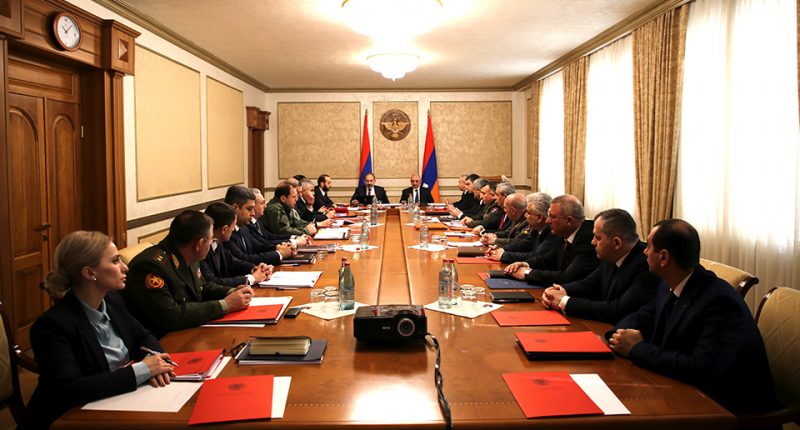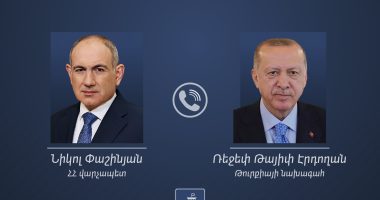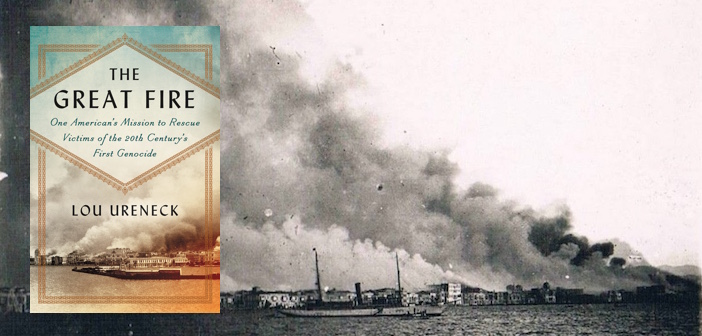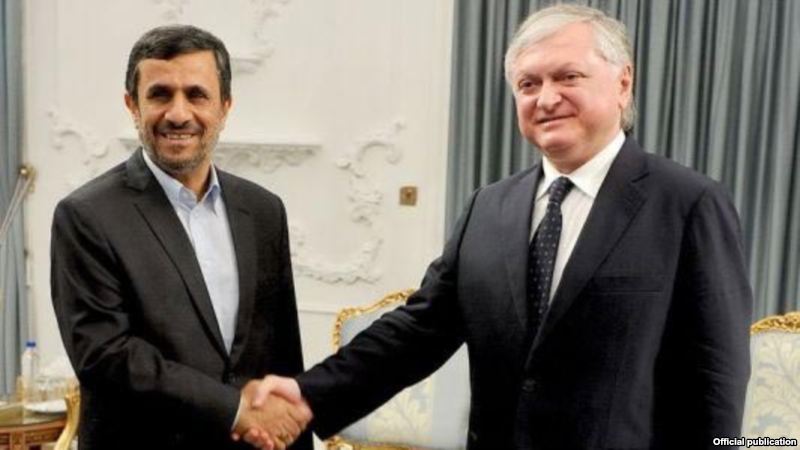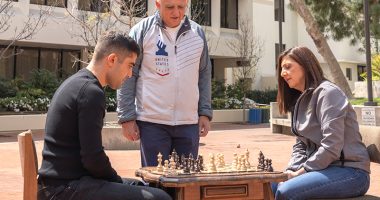STEPANAKERT (RFE/RL) — Armenian Prime Minister Nikol Pashinyan again called for Nagorno-Karabakh’s becoming a full party to the negotiations as he addressed on Tuesday his top security aides ahead of his first meeting with Azerbaijani President Ilham Aliyev to be held with international mediators’ assistance sometime soon.
Together with Nagorno-Karabakh president Bako Sahakian Pashinyan presided over the first-ever joint meeting of Armenia’s and Nagorno-Karabakh’s Security Councils held in the Karabakh capital of Stepanakert today.
In his opening remarks before the start of the meeting the Armenian premier described it as “unprecedented” and “very symbolic” and singled out three main issues to be addressed by senior representatives of the Armenian political and military leadership.
Pashinyan reiterated that Nagorno-Karabakh’s becoming a full party to the negotiations conducted under the auspices of the Organization for Security and Cooperation in Europe’s Minsk Group co-chairmanship (the United States, Russia, France) will be a key point during his upcoming discussions with Aliyev.
“This is not a whim, nor a precondition. This is simple logic that Nagorno-Karabakh’s involvement is key to the settlement process,” Pashinyan stressed, as quoted by his press office.
Azerbaijan has opposed Nagorno-Karabakh’s participation in the talks as a separate party, insisting that the region is “occupied” by Armenia and negotiations should be held only with official Yerevan. At the same time, the Azerbaijani leadership has repeatedly raised the issue of ethnic Azerbaijanis displaced from Armenian-populated Nagorno-Karabakh during the 1988-1994 war.
Pashinyan explained that unlike Aliyev, for whom “Nagorno-Karabakh’s Azerbaijani community” also voted as current citizens of Azerbaijan, he cannot represent the people of Nagorno-Karabakh, since only citizens of Armenia voted for him and his political team in Armenian elections. The international community, Pashinyan said, is represented at the negotiations by the OSCE Minsk Group co-chairs. “So far, the negotiation process has in fact involved all stakeholders except one… The problem is that no one has the authority and legitimacy to represent the people of Nagorno-Karabakh at the negotiations today,” he said.
At the same time, Pashinyan described as absurd claims that by seeking Nagorno-Karabakh’s involvement in the process Armenia tries to shun responsibility and put the entire responsibility on the authorities or the people of Nagorno-Karabakh. “The Republic of Armenia has and will be the number one guarantor of Nagorno-Karabakh’s security and will continue its involvement in the peace process,” the Armenian prime minister underscored.


In its latest statement issued over the weekend the OSCE Minsk Group co-chairs reiterated that “a fair and lasting settlement must be based on the core principles of the Helsinki Final Act, including in particular the non-use or threat of force, territorial integrity, and the equal rights and self-determination of peoples.”
“It also should embrace additional elements as proposed by the Presidents of the Co-Chair countries in 2009-2012, including: return of the territories surrounding Nagorno-Karabakh to Azerbaijani control; an interim status for Nagorno-Karabakh providing guarantees for security and self-governance; a corridor linking Armenia to Nagorno-Karabakh; future determination of the final legal status of Nagorno-Karabakh through a legally binding expression of will; the right of all internally displaced persons and refugees to return to their former places of residence; and international security guarantees that would include a peacekeeping operation,” the mediating troika said.
Speaking before the Security Councils’ meeting in Stepanakert, Pashinyan said that one of the questions to answer was whether the government of Armenia accepts these three principles and six elements as a basis for the negotiation process.
“This is really an important question, but in answering this question we need important clarifications. What can these principles mean in practice and who has the right to interpret them? This is important, because the way Azerbaijan interprets these principles is unacceptable for us. We, of course, can come up with our own interpretation of these principles, but it’s pointless because our goal is not to engage in a war of words, but to have an efficient negotiation process. And consequently, the basis for the negotiation process should not leave room for different interpretations,” Pashinyan said.
“However, the principles and elements proposed by the co-chairs have given rise to all sorts of interpretations over the past 10 years and, therefore, the most important objective of the forthcoming negotiation process should be to clarify the so-called main concepts – the three principles and six elements, and we are ready also for such a conversation.”
Another major issue pointed out by the Armenian prime minister at the Stepanakert meeting is preparing societies for peace.
“I think it is necessary to emphasize that preparing the peoples for peace cannot be a separate issue of only one government involved in the negotiations. This should be joint work. I mean, for example, preparing Azerbaijan’s society should take place not only with the participation of Azerbaijan’s government but also with the participation of Armenia’s government. It was this consideration that forced me to make a statement from the parliament tribune last fall, a statement that was, in fact, unprecedented for our reality, as I said that any solution to the Nagorno-Karabakh issue should be acceptable for the people of Armenia, the people of Nagorno-Karabakh and the people of Azerbaijan… Unfortunately, we do not hear similar statements and do not see similar steps from the president of Azerbaijan. Despite this, I am ready to continue the dialogue not only with the president of Azerbaijan, but also with the people of Azerbaijan, because I am convinced that the people of Azerbaijan are as peace-loving as the people of Armenia and Nagorno-Karabakh,” Pashinyan concluded.
For his part, in his opening remarks Nagorno-Karabakh president Sahakian, in particular, stressed that international recognition remains a priority for Stepanakert.
As a result of discussions both security councils reaffirmed that Nagorno-Karabakh’s “defense capabilities are guaranteed and are at the high level.” “At the same time the two Armenian sides again expressed their support for and commitment to an exclusively peaceful settlement of the conflict under the aegis of the OSCE Minsk Group and on the basis of the fundamental principles of international law, in particular, the right of peoples to self-determination,” the Armenian prime minister’s press office said in the press release.

